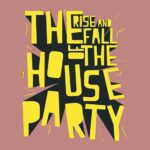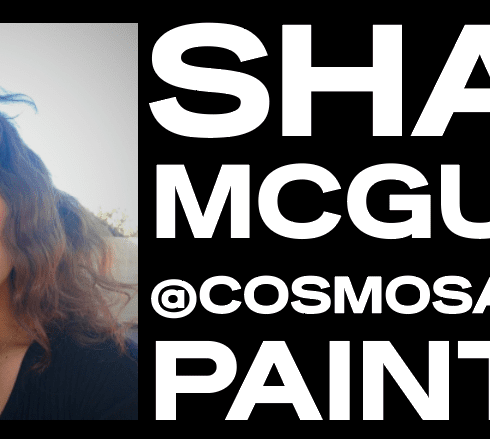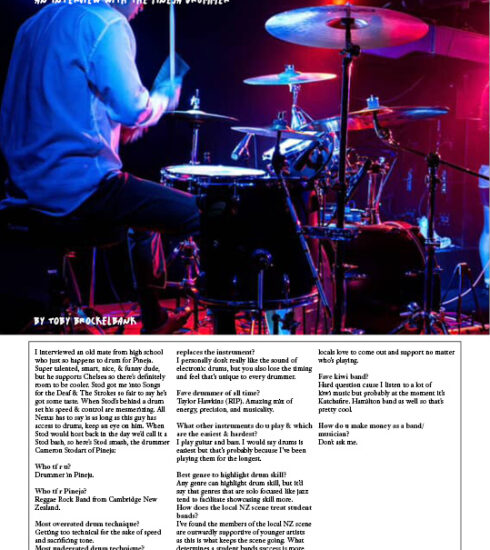The Changing Face of Town – Issue 13
In a little over a decade Hamilton has seen significant changes to its hospitality sector. Owners have come and gone and some of the formerly iconic names like Static, the Loaded Hog, Spirited, and Orbit have been consigned to the history books. The last ten years have also seen multiple ownership changes, and even an attempted open-air festival (Soundscape). Through it all The Lawrenson Group has remained the consistent presence in town.
On the eve of Re-O’Week we sat down with the man who has been there through it all, John Lawrenson, to discuss everything from what he feels he has accomplished to where he thinks hospitality is moving.
NEXUS: So, how and when did you end up in Hamilton?
JL: 2006. I completed degrees in law and business in Dunedin where I paid the bills by working in bars at night and studying during the day. When my friends graduated at the end of 2001, they all moved away. I spent a couple of years in Christchurch working in tax law but when I returned to Dunedin in 2004, I felt like I didn’t know anyone anymore and it was a pretty lonely
time. I went to Europe for a bit and when I returned I decided I couldn’t work in tax law for the rest of my life. I had a couple of friends in Hamilton, and my father lived here too. When I would go up to visit them in Hamilton I was always struck by how little was happening in the hospitality
industry here compared to Dunedin, which had a similar population. So, after a few conversations, I decided to move to Hamilton and open a bar with those friends. Furnace opened about 15 months later in mid 2007.
NEXUS: What was your vision for student culture?
JL: Something more like Dunedin. Besides the Outback Inn, there was the Bahama Hut, and Coyotes but it didn’t seem like the competition between them was particularly fierce. Dunedin was pretty aggressive in its drink pricing, whereas it seemed to me that everything in Hamilton was pretty expensive for students. I came in with some heavily discounted drink pricing which was more in line with what the students were paying in Dunedin. That’s when I got to know the local alcohol regulatory team at the Police, Council and the DHB. They were initially pretty hostile to what I was trying to do. That vision has definitely evolved over the years. While I still try to make things affordable, whether it be food at House or drinks at Coyotes, the vision has expanded to making town a more exciting place by putting on events for students that they can afford and that are in their city, rather than in Auckland.
NEXUS: Did you always see it as owning a group of bars or did it just happen that way?
JL: To this day I am not sure of the answer to that question. Initially, I was really happy to have one business between me and my friends but when I left my legal career behind, I knew it was because I wanted to do something pretty big. Having said that, I know that the 28-year-old me who started this group would have been very happy at the time if he knew what I would go on to achieve. I had very little money when I started out and I only owned 35% of my first business. I think at one point in 2007 I said I would be really happy if one day I owned three bars. But things just continued to go well and by the end of 2008 I had managed to grow to four. At the same time that I was starting out in Hamilton, the Phoenix Group was growing too, with bars like CBD and Rodeo Rodeo. What I didn’t realise was how much damage those bars were doing to The Bank and how much damage Bar101 was doing to the Outback. In early 2009, both of those iconic sites went on the market. I just expected that the Phoenix Group would buy them but after a few months had gone by and nothing had happened I decided to make a low ball offer on the Outback and to my surprise it was accepted. I changed the opening hours straight away and made a few other changes and it returned to profitability. When no one bought The Bank I made another low ball offer on that and it was accepted too. Only two and a half years had passed and I had a group of seven bars: Furnace, Bar101, Easy Tiger, The Helm, Shenanigans, The Outback Inn and The Bank. The following year I added four more. It was very organic, but in hindsight probably lacked a little strategy too, something that I was to learn a hard lesson from in later years. It was all funded on cash flow and bank lending so it was really a house of cards for a long time and there were a couple of times it nearly came crashing down. Looking back it’s a mystery to me that BNZ were as supportive as they were. I owe a lot to those initial bank managers.
NEXUS: Was there ever a point that you felt like getting out?
JL: Yeah from time to time. In the early days I felt the Police and the liquor licensing teams in general were incredibly hostile and it made operating hospitality businesses very stressful. A couple of police and council staff in particular seemed like they were more “out to get” operators than actually work with them to reduce alcohol-related-harm. These days the overall relationship with most of the Police I deal with is generally really positive, certainly for the last few years anyway, which has made things a lot less stressful. Over the last couple of years especially, I have been really enjoying what I do. I like my team, I like what we do for the central city, and I am excited for what the next few years will bring. So yeah I think everyone has periods or incidents that make them think “why am I doing this”, but I far more often find myself thinking “this is why I do this” because it is rewarding.
NEXUS: How has the drinking culture changed over the years?
JL: Mid week drinking has disappeared in town. Thursday used to be a massive night, and Wednesday was pretty good too, but with the introduction of zero blood alcohol levels for drivers under 20 and a lot more assignments, tutorials and classes on Thursdays and Fridays, the Wednesday and Thursday nights just died away. Besides that, not too much really. I don’t feel like people turn up to town as wasted as they used to, which is a good thing for us and for them. There is a lot more interest in combining food with drinking now too, whether it is a BYO place, or the food deals at House, or restaurants like Mexico, those sorts of offerings have grown in popularity since I started in business.
NEXUS: As a venue owner, do you have to be more aware of the wellbeing of your patrons, particularly young women?
JL: Absolutely. I take that responsibility very seriously. My senior team have definitely heard it from me many times that our venues need to be seen as safe spaces for all of our patrons. While it is something I have always taken seriously, in recent years I have become involved with the City Safe initiative, which addresses the safety of the entire inner city, working alongside the likes of the Police and the WSU, and providing facilities like Safety Zones during O’Week, to try to further improve people’s safety. Sadly and frustratingly, we do occasionally see a spate of drink spiking in town. We have done a lot of work with our nightclub teams on looking for signs of vulnerable patrons and will continue to focus on this.
NEXUS: When did cover charges start to become a thing in Hamilton venues?
JL: About ten years ago. Pre-loading was a massive issue and there was a small bar right next to the Outback that sold shots of bacardi and tequila for $2 to $3. People would walk in there, get five shots for $10 to $15 and then just walk back into the Outback and buy nothing from us. It was like owning a movie theatre and showing all the movies for free but hoping we could survive making enough money from selling the occasional popcorn. It just wasn’t working. We backed the fact that we had invested in sound systems, lighting, DJ’s etc. and that people would still choose us because our venues were better. At the time there were still other venues to go to, like Agenda, but over time people continued to choose us and pay the $5. With the cost of doing business these days, most nightclubs wouldn’t survive without door charges.
NEXUS: It seems like there has always been criticism attached to The Lawrenson Group. Can we just list a few and get your views on these:
Your venues helped kill a live, original, local music scene
JL: I had never heard this criticism until very recently and I was pretty surprised by it to be honest. I don’t recall this live, original, local music scene that was apparently thriving, but if it did exist, it wasn’t playing at any of the venues that I took over. There have been venues like Flow, Nivara Lounge etc. that have catered to that market. But I guess my feeling on the live, original, local music scene is that the people who want to see it thrive, need to support it and not look for people like me to blame for its lack of popularity.
Your orientation programmes are seemingly the same every year.
JL: We have tried introducing different parties over the years but they have been unpopular and so we have gone back to what has worked. The thing about toga parties is that they are cheap and easy for every student, and so lots of people take part in them. When we have tried to introduce other themes, students have seemingly put them in the too-hard-basket and not embraced them. Foam parties are iconic, so are toga parties and Beerfest. I would say that our O’Week Fridays and Saturdays have definitely developed and changed over the years though. In the last few years we have hosted some pretty big artists at The Factory and will continue to push the boundaries here as much as we are able to.
Your view of student culture is a really narrow one based on whatever the ZM soundtrack of the week is.
I don’t know that anyone who works in my senior team even listens to ZM or has any idea what the soundtrack of the week is. Most of them listen to George. As far as my view of “student culture” is concerned, I don’t really have one. I just want to put on parties and shows that students want to go to so that they don’t feel like they are missing out by living in Hamilton and choosing the University of Waikato over say Otago in Dunedin for example. While I am sure there are many different aspects of student culture, other businesses are welcome to try to provide for those aspects. If there is a market, and that market supports that business, then they will be successful and I would say well done to them for seeing something that I didn’t.
NEXUS: People have a perception that you drove a lot of the other venues out of business or out of town. Do you miss the competition of having multiple venue owners?
JL: I didn’t set out to drive people out of business. Hamilton is really hard to do business in. Just walk up the main street and count all the For Lease signs, and you will realise that pretty quickly. My Chief Operations Officer and I have been prepared to walk the streets until 3am every weekend for the last 14 years making sure that our venues are running as well as they can. Other people weren’t prepared to work that hard or weren’t able to deliver a popular and profitable business model like I was. When you combine that with the really difficult business environment in central Hamilton, a lot of people failed. I have probably had less than 20 Saturday nights off work since 2010. I don’t think I miss the competition, but I will say that the competition I used to have was quality competition, like The Phoenix Group or Richard Bate or The Bahama Hut. There are still a few really good places like Wonder Horse, but I feel like they are the exception in the late night scene and that these days a lot of the “competition” that is trading in the central city after 11pm is pretty parasitic for want of a better word. They have just set up in old run down venues that others have walked away from, they are offering very little, and just taking any customers they can get without trying to deliver something that would actually entice people into town. That sort of competition doesn’t really do anything for central Hamilton.
NEXUS: How will some of the development plans for Hamilton (including the new theatre and everything Matt Stark is doing) impact South End Hospitality?
JL: Hard to say. Having owned the Roaming Giant across from the Claudelands Event centre, and seen the limited impact that a 5,000 person arena had on the annual turnover of one venue, it’s hard to imagine that a theatre that holds barely 25% of Claudelands is going to have much of an impact on 30-40 hospitality businesses in Victoria and Hood Street all sharing that smaller crowd. I have a sneaking suspicion this theatre is going to be another White Elephant for the city that will cost the ratepayers moonbeams to maintain every year and only gets used about half as much as we have all been told that it will be. A great vanity project for those who are behind it though I guess. Whether it ends up benefitting anyone else but the developers remains to be seen. With a budget of over $70 million, which includes huge contributions from taxpayers and ratepayers, I would say that the developers will make out like bandits, especially as they already own the site, and so are very unlikely to accept any other competitive tenders.
I do like what Matt Stark has been doing though. He seems to have a vision for his buildings and genuinely seems to care about securing innovative, high quality tenants, and modernising the city. Unfortunately, there are other developers who just seem to want to build four storey boxes and get any tenant they can get and then sell the buildings off to unsuspecting investors before the tenant fails and the building ends up standing empty. Some of those tenants will be hospitality operators, so it will be interesting to see what the hospitality landscape looks like in 7-10 years time when a lot of this inner city work is finished. I fear we will end up with a few empty buildings that just look newer and flasher than the current empty buildings. However I am sure those developers in question will have made their money and moved onto the next thing, so they probably won’t care too much.
NEXUS: Could you ever see something like Soundscape (a multi-zoned festival in the CBD) happening again?
JL: Not with the current liquor licensing team. Look at the recent issues with the liquor licence for the Great Kiwi Beer Festival, or the issues with increasing the crowd size for Six60 at Claudelands. I don’t think anyone would bother trying because the reputation Hamilton has is that it would just be too difficult to get it across the line, and not worth the hassle. I am not saying it is impossible, but it is pretty bloody close to it! I certainly couldn’t see myself doing it under the current operating conditions.
NEXUS: Is there anything currently missing from the offering to students that you are considering introducing?
JL: Just more events. We are trying to bring more artists into The Factory and more boutique shows to the likes of House. I know in Auckland there are a lot of steins for the law school and the engineering school and the management school. I feel like that is something missing from Hamilton. The WMSSA and WULSA events that we have hosted have been great and I would like to see more of that sort of thing and on a bigger scale. Ideally we would like to make The Factory bigger and be able to bring bigger shows. Again, it comes back to wanting to make sure that people don’t feel like they are missing out because they chose to live in Hamilton.
NEXUS: How do you think our orientations compare to other universities around the country?
JL: I think they are pretty strong these days. Otago is probably still the gold standard, but most of their student bars have disappeared over the last ten years, bought by the university and turned into computer labs, so a lot more rests on their events at Forsyth Barr Stadium. Auckland has such a large population that it is able to secure big shows at venues like The Cloud, which haven’t worked so well in Hamilton when promoters have tried to put them on at Claudelands. Overall, I think the town scene has come a long way in the last couple of years. Either side of Re-O’Week we have Dimension playing for $29-$49 and Pendulum for $39-$59. That is as cheap as you will see those artists anywhere, especially on that level of light and sound production. Most of the major promoters seem to tour some big artists around O’Week and Re-O’Week and our team is always working hard to secure those shows for Hamilton so that we retain parity with the other student centres.
NEXUS: When you look back over the last decade, what were some of your highlights?
JL: Bringing Six60 and Dave Dobbyn back to Hamilton after five years and ten years respectively of them not playing here. That felt pretty special. The first Peking Duk show at The Factory, as well as Netsky and Wilkinson, were also highlights. As well as the Sean Kingston show which was the craziest night I have ever seen. The line for The Outback ran out of the alleyway, past The Bank and then halfway down Hood street. Building and opening big venues like The Roaming Giant, The Wayward Pigeon, The Helm, were big achievements at the time, especially some of the earlier venues, because people kept saying I was nuts and that the businesses wouldn’t work. I was also very proud to win New Zealand’s top regional restaurant for Victoria Street Bistro in 2013. I think the buzz of putting on big events and opening new venues was very much the pinnacle for me in the early days. Now it is more about the organisation I have created. Hospitality is not really seen as a “proper job”, but something you do until you figure out what your real career is going to be. I have a close knit team of people, many of whom started working for me more than a decade ago, and to see them still working for me and also buying houses, getting married, starting families, etc. because they earn enough and can balance work and life while working with me has been very rewarding. That coupled with putting on a staff awards night each year where we recognise our best and brightest with a black tie dinner for 250-300 people are the sorts of things that really make me feel good about what I am doing now.
NEXUS: Do you see a point on the horizon where you will just retire? Appoint a new CEO and just collect a cheque.
JL: Not at this stage. I still have plans to seriously upgrade some of the venues I have and I am also opening a new venture later this year working alongside a popular local craft brewery that I am very excited about. I also think we have a few business models that would go really well in Tauranga and Auckland, so while the passion is still there and I am enjoying this, then I don’t think I would want to step back. I am not sure where I would find that CEO. They would need to love hospitality, care about Hamilton, and care about my team, and want to work as much as I do. If anyone reading this knows anyone, send them my way! Haha! Who knows, maybe I would change my answer to this question if the right person came along, but it is hard to imagine it right now.
NEXUS: Finally, what is the future for Hamilton hospitality?
JL: I think we will see a few more impressive, exciting bars over the next few years. A few more dining lanes, cocktail and wine bars etc. I think we have a strong café culture growing off the backs of sites like Cream and Hayes where chefs who have worked overseas in cities like Melbourne are bringing back some great ideas and I think that will only improve and grow. I think we will also continue to see more great ethnic restaurants open up which will increase the options available for Hamilton diners. I think Hamilton punches above its weight a lot more than it did 15 years ago. I would expect that to continue.





